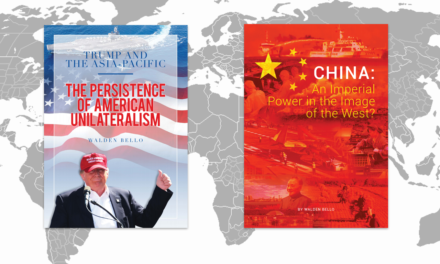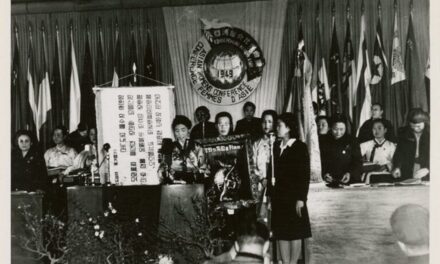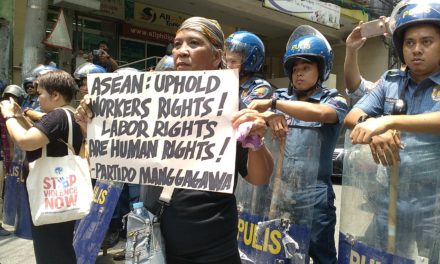By Clarissa V. Militante
Impunity has been de ned by the international legal community, including the United Nations and the International Criminal Court, as being ‘exempt from punishment’, and thus the implication is that when the perpetrator is not brought before justice and excepted from punishment based on law, then the victim and his/her kin are denied due process and justice too.
Impunity, though, is no longer just about the wrongdoer and his/her victim, as it also involves other actors and institutions, and encompasses an array of actions, mostly harmful, and has impacts on human rights, creating implications for society at large. There is a culture in which impunity thrives—where social values and economic and political factors enable it. But there is also a culture that resists it—one that is anchored on human rights principles and values.
There is a culture of impunity now where acts such as extrajudicial killings, assassinations, abductions, and enforced disappearances, unjust imprisonment, and torture, are directed against people engaged in political activities, such as peasants ghting for land rights, indigenous peoples resisting corporate encroachment on ancestral lands, environmental and human rights activists, and journalists.
Impunity implies failure on the part of those with obligation to protect citizens, speci cally government and its security agents. In many countries today, in particular in Asia, where un-democratic political systems prevail, governments have failed to address, much less solve, crimes that have often also involved government security agents.
The state’s inability to perform its duties, and in many cases its collusion with the perpetrators, contribute to the delegitimizing/criminalization of dissent/ dissenters. This breeds and sustains a culture of fear and silence, and worse, apathy among civilians.
Impunity, however, is not merely a legal term nor a political issue, as it affects and transforms people’s lives. It means loss, tragedy, scarred futures for many families and communities. It results in the loss of mothers and fathers, daughters and sons, kin, neighbors, friends, community leaders. Thus, it is also best understood from personal stories and witnessing.
What does the absence of justice mean for a wife and mother, for instance?
Ng Shui Meng, wife of Sombath Somphone, a victim of enforced disappearance since 2012, said in her opening remarks, which was read for her at the Asia-Europe People’s Forum (AEPF) in July 2016: ‘Recently, I have been asked, “How hopeful are you that Sombath will still come back?”, or even more bluntly, “Do you think Sombath is still alive?” To such questions, I only have this to say,“I remain hopeful that he will come back to me alive.” I get up every day in the hope that Sombath will come home; I draw each breathe in the hope that Sombath will come back! I must have hope, for what is there left for me if that “hope” is taken away?
But I do have a major fear; my greatest fear is that with the passing of time, his disappearance will be forgotten. I am realistic—everyone is busy with their own life and work; they have families to take care of; they have careers to pursue, and they have other interests or other causes to engage with. It is natural that people forget—sometimes even I want to forget, but I can’t. For me it is personal; but for others I cannot begrudge them;
I can only hope that all people working for justice, truth, and a better world for themselves and for their children do not forget, Sombath is still missing.”1
Four years after Sombath’s disappearance, the Lao government has not come up with any signi cant lead as to who abducted Sombath, their motives, and Sombath’s whereabouts. CCTV-recorded event of Sombath’s abduction had indicated government security forces’ involvement.
Edith Burgos, mother of disappeared Jonas Burgos, had once said that “not knowing the truth” about her son is in itself a form of suffering. Jonas was abducted eight years ago by members of the Philippine military.
“We have won the battle and yet we are losing the war… Jonas has not been returned to his family and nobody has been held responsible for this noncompliance of the Supreme Court order (February 2, 2014). Even the National Bureau of Investigation whom Your Excellency has ordered to investigate and to le the necessary cases as expeditiously as they can as warranted from the investigation, has not done anything after more than a year after your order was received,” said Mrs. Burgos in an open letter to the government.[2]
As non-government and civil society organizations continue to address other critical issues and problems faced by the communities and people’s organizations, such as land and resource grabbing, environmental destruction brought about by mining operations, coal power plants, and dam constructions, the gravest threat now also comes from criminalization of dissent and direct assault on activists and rights defenders through murder, abduction and enforced disappearance, which have gone on because of impunity.
The list of victims is becoming longer. For communities and people to be able to build their power, however incrementally, to face development and economic issues affecting them, it is important to have space to organize, educate, and mobilize to confront corporate power, as well as state power when it colludes or conspires with corporations. But the space for these community and local actions and discussions is diminishing; whatever space left needs to be defended.
Impunity, especially as a result of collusion between corporate power and repressive States, seems unstoppable. The task to confront it seems daunting. But history has also proven that it is through social movement building and creation of a critical mass of conscious, socially aware civil society actors that such power or forces can be dealt with. A culture that values and upholds human rights is still the best form of resistance to impunity.

![[Event] Forum and Book Launch of “Transitions”](https://focusweb.org/wp-content/themes/Extra/images/post-format-thumb-text.svg)







